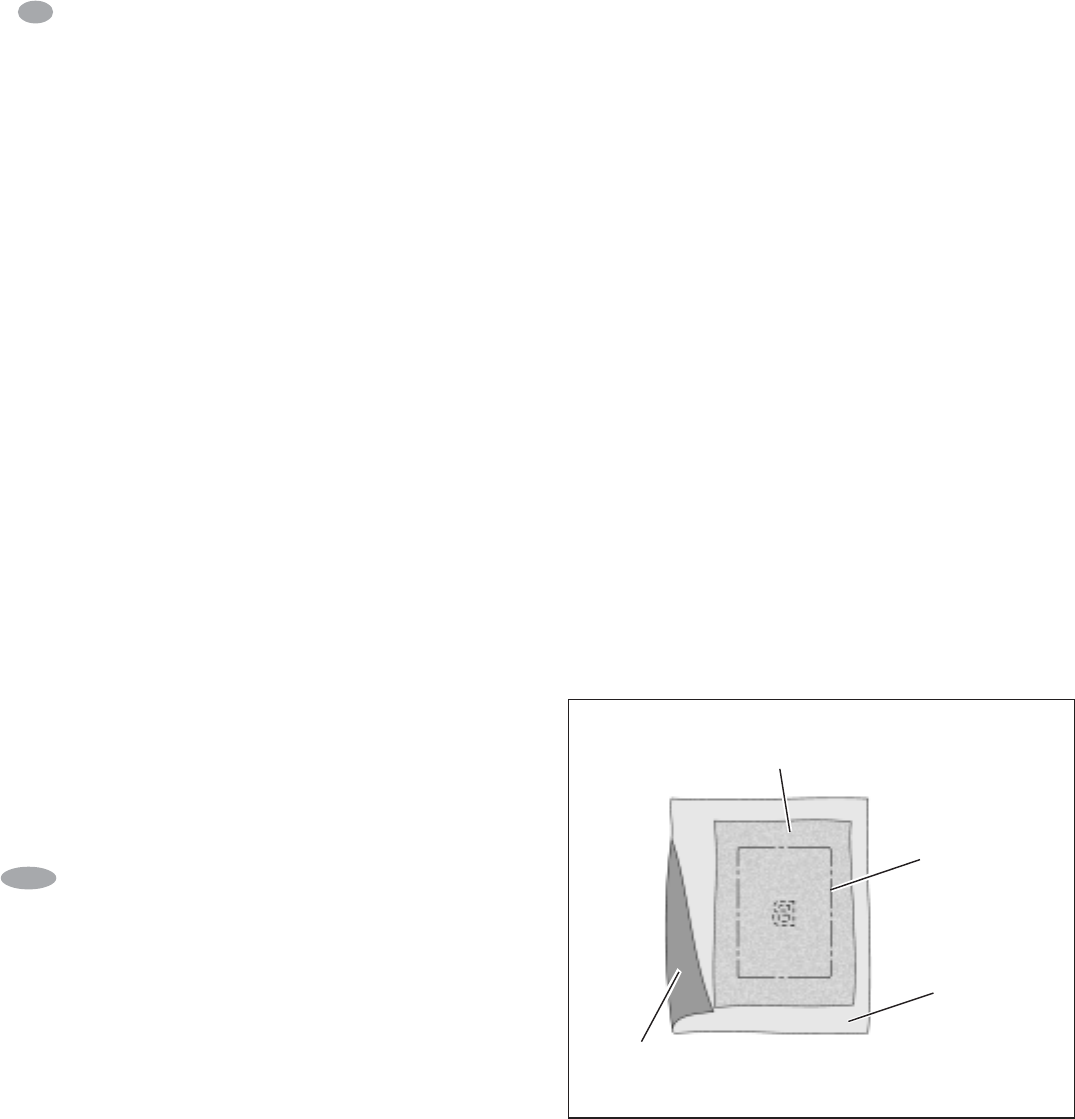
72
USING THE MATERIAL AND STABILIZER
MATERIAL
Use stabilizer to produce better results when embroidering on
the following fabrics or items.
¿ Materials which lack firmness or stability such as ligthweight
cotton.
¿ Thin, soft materials such as hankerchief linens.
Because materials such as this lack firmness or stability,
embroidery stitches may pull in, which can result in
problems such as shrinkage and puckering of the material
around the embroidery area.
¿ Stretchy materials
If the material is stretched when it is being tightened in the
hoop, the result may be uneven embroidery. Furthermore,
when the material is removed from the hoop after
embroidery is complete, the material may shrink and cause
the embroidered pattern to become distorted.
Embroidery can be applied to many types of fabrics, but it may
be necessary to prepare these fabrics in a special manner.
* Materials with a loopy or napped surface such as towels, use
a soft mesh cut-away type stabilizer on the backside, along with
a rinse-away stabilizer on the topside.
* Denim and linen are considered unstable because of the
loose weave, use a medium weight cut-away stabilizer on the
backside.
* T-shirt type material usually require at least one, sometimes
two layers of soft mesh-type cut-away stabilizer.
* For medium to heavyweight stable woven fabric, use a
medium to heavy weight tear-away type stabilizer.
* For soft or sheer fabrics, use a rinse-away type stabilizer.
Stabilizer (Adhesive surface facing down)
Entoilage (surface adhésive orientée vers le bas)
Entretela (superficie adhesiva hacia abajo)
Hoop position
Position du cerceau
Posición del aro
Embroidering surface (Top side)
Surface de broderie (côté supérieur)
Superficie a bordar (Lado de arriba)
Material (Under side)
TISSU (Côté de dessous)
Material (Reverso)
STABILIZER
Stabilizer is made from non-woven fabric. There are a variety
of stabilizers available: tear-away, cut-away and wash-away.
Which stabilizer you choose will depend on the nature of the
fabric that you are embroidering on. Follow the manufacturer’s
instructions on how to use and apply the stabilizer correctly.
Generally the stabilizer should be larger in size than the hoop
with which it is being used. When embroidery is complete, use
a scissor to carefully remove any excess stabilizer from the
embroidery area.


















